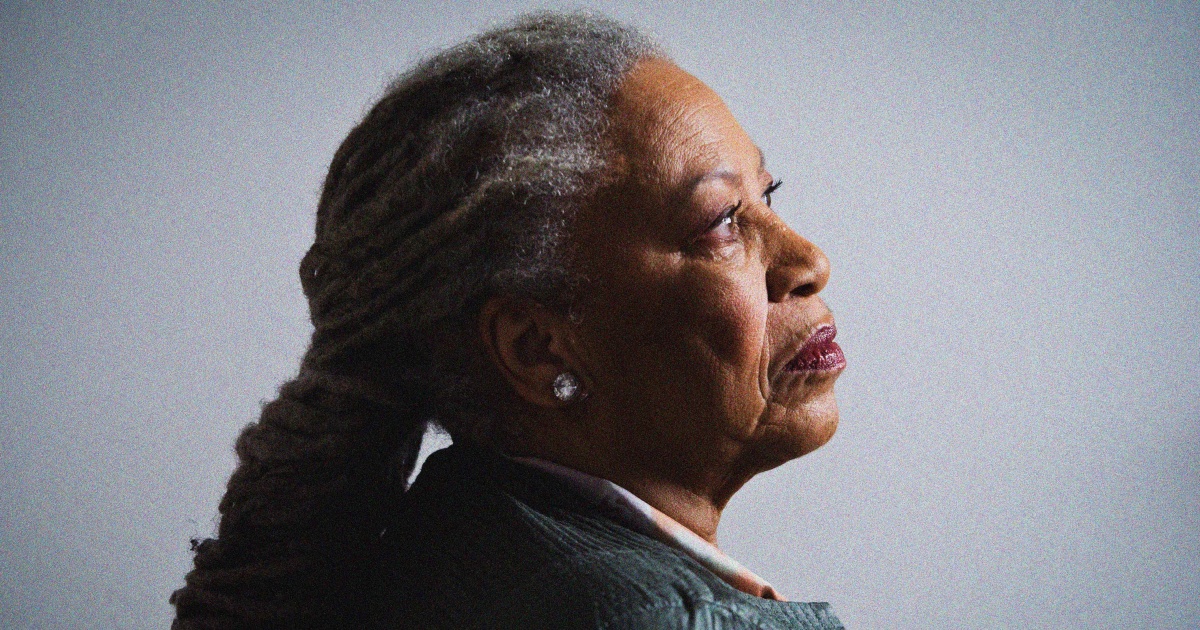
“124 was spiteful. Full of baby’s venom.”
These lines open Toni Morrison’s magnum opus “Beloved”and give the reader fair warning that the story is about something haunting. But what “Beloved” represents is a haunting in itself. The novel never lets us forget that the past is ever-present.
That’s part of the reason the book is considered not only part of the canon of Black literature but American literature as a whole. But it’s also why people are trying to keep it out of public schools.
When it is convenient, the past and the present can coexist. But when we suppress ugly truths, the past doggedly haunts us.
The characters in the book who escape the Sweet Home plantation and reach freedom in Cincinnati, settling at house number “124,” want to forget elements of the past — the horrors of enslavement especially. But the title character, the reincarnated victim of her mother’s infanticide, needs them to remember. Beloved craves more than remembrance, in fact. She demands a confrontation between the past, the present and the future.
An openness to teaching such moments of confrontation has become the latest flashpoint in the heated Virginia gubernatorial race. On Monday, Republican candidate Glenn Youngkin released an ad condemning former Democratic Gov. Terry McAuliffe’s veto of a bipartisan bill that would have required schools to notify parents when books with explicit content were assigned. The ad features Laura Murphy, who, in 2013, objected to “Beloved’s” inclusion as required reading for her son’s senior-year Advanced Placement English class. Casting himself as the “parents’ rights” candidate, Youngkin has also declared his intent to ban critical race theory the day he is elected.
How ironic is it that the themes of the book mirror what’s playing out on the campaign trail.
McAuliffe labeled the ad a “racist dog whistle.” But the promise to ban or to require warnings about books that cause lawmakers to “turn bright red with embarrassment,” as Murphy said happened when she reached out to lawmakers about the book, is more than a dog whistle. It is evidence of just how petrified this nation is of its past, especially when that past challenges American myths of freedom and justice for all. But we cannot escape this past. It’s in our statuary, our architecture, our entertainment and our culture. When it is convenient, the past and the present can coexist. But when we suppress ugly truths, the past doggedly haunts us.
Beloved’s relentless pursuit of truth insists that we see both virtue and vice. The novel’s telling of the love affair between Sixo, who is enslaved on the Sweet Home plantation, and the Thirty-Mile Woman (who is enslaved on a neighboring plantation), so called because he walked 30 miles regularly to see her, gives us unparalleled insight into their interior lives, even if they are imagined. There are some stories only fiction can tell. Their thick love — as the novel describes it — enlivens our understanding of Black people’s emotional depth, even during the absurdity of enslavement. Therein is the virtue. Then, white men burn Sixo alive when he is caught after his final escape attempt from Sweet Home. Therein lies the vice. Even so, he laughs and yells “Seven-O!,” the name of his and Thirty-Mile Woman’s unborn child, because he sees hope in the promise of the baby’s arrival. This is the work great literature does. “Only writers,” as Morrison once said while opposing the censorship of books, “can translate and turn sorrow into meaning.”
It is not, nor should it be, easy to read about the psychological effects of slavery or the physical torture the enslaved endured. We should be uncomfortable when we read about Halle, one of the enslaved men on Sweet Home, who never recovers mentally after seeing young white boys suckle his wife, Sethe. Their assault is two-fold. When they are done, they beat her with rawhide whips. The inhumanity should make us uncomfortable enough to start asking questions about America’s past. Later, when another enslaved man, Paul D., sees Halle sitting mute and in horror, he cannot cry out or provide his friend with any comfort — because he has an iron bit in his mouth, as he awaits transport to a prison labor camp for daring to try to be free. The story is ripe with moments that force us to reflect on the traumatic experiences of Black Americans. But it is far more than that. After Sethe runs away and resolves to kill her children — one of them being Beloved — rather than have them return to slavery, our moral imagination is sharpened as we, too, are left to question her right to take someone else’s life, whether it is out of sense of duty and protection or as a mad act of freedom and independence.
If a senior in an Advanced Placement English class finds the content of a book like “Beloved” so “disgusting and gross” that it caused him to have night terrors, as Murphy claimed happened to her son, imagine how much more difficult the lived experience must have been. What Youngkin’s choice to raise this issue at this point in the campaign reveals is his understanding of the appeal of anti-intellectualism among a specific segment of voters. The goal of all great literature is to teach and to enlighten. Clearly, not everyone is interested in that kind of lesson or enlightenment, not when it means shifting our view of the world from innocent to complicit. But memories of past inhumanities do not die. They haunt us. And no effort to outlaw thinking can stop it.
It is not, nor should it be, easy to read about the psychological effects of slavery or the physical torture the enslaved endured.
“Beloved” and so many books like it show us how literature does the work history will not. If we allow shallow teachings of history to hide the life of Margaret Garner, the woman whose story inspired Morrison to write the novel, we also enable the erasure of slaveholders’ incongruous uncertainty about what charges could be brought against Margaret Garner for killing her child. If the act was considered murder, the young child must be acknowledged as a fellow human. Unwilling to concede that reality, the case was cast as one about fugitive slaves and property, not murder. In its telling of Margaret Garner’s story, “Beloved” forces us to reckon with the ugly truths of American enslavement, racial violence and circumstances so awful that infanticide could be considered a viable, reasonable response.
If “Beloved” teaches us anything at all, it is that, in fiction and in fact, exorcisms of the past are complicated. The past has lessons to teach us, and literature, in general, gives us a safe place to work out the contradictions of the past in ways that can inform the future.
Morrison’s word-play with the line,“This is not a story to pass on,” at the end of the novel is telling. This is indeed not a story to opt out of or to skip, and the lived experiences of the story is one that shouldn’t be passed down to future generations — but if it’s not dealt with in the present, the past (however vile) will continue to haunt us.
Source: | This article originally belongs to Nbcnews.com










